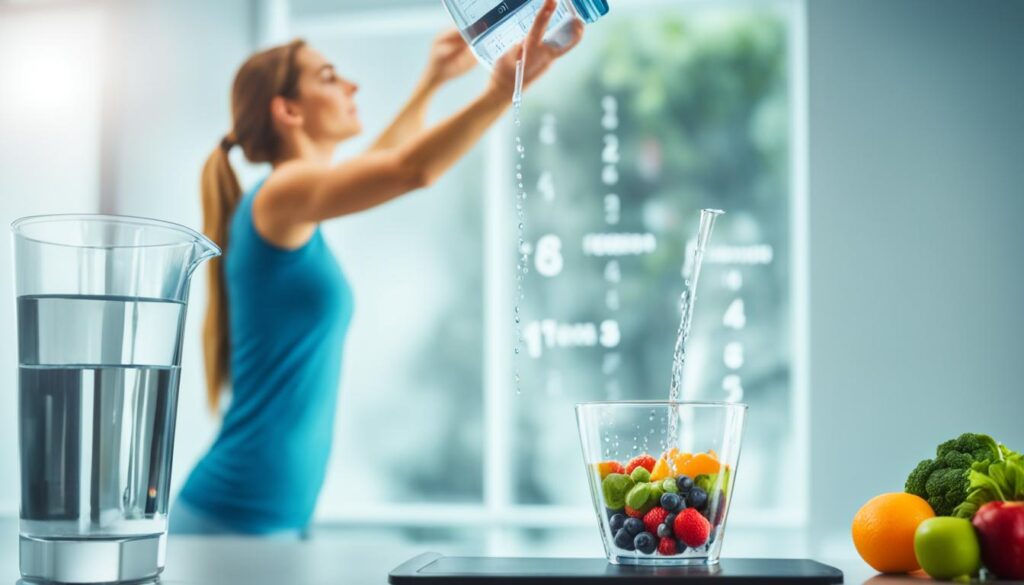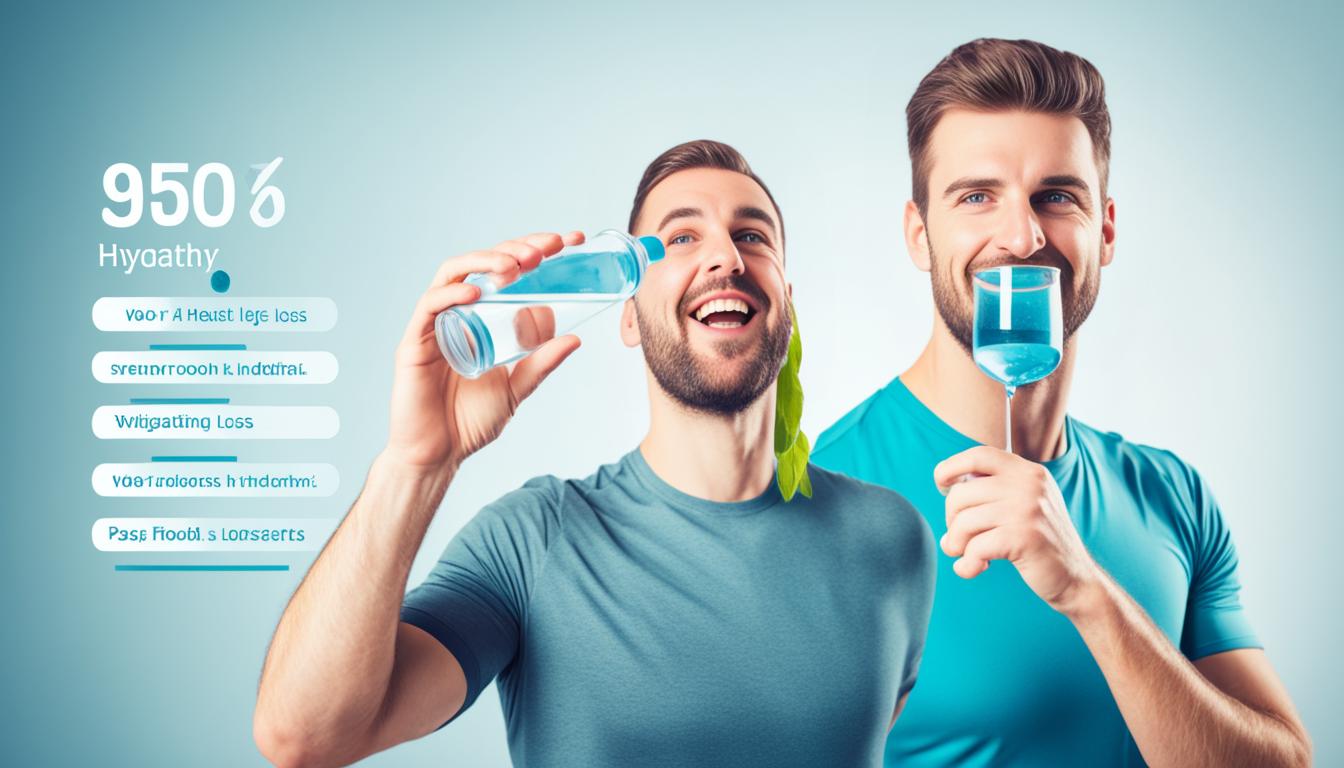Integrating water into your diet can become a powerful step towards shedding pounds effortlessly. Considering that the human body contains around 60% water, it’s no surprise that water significantly influences weight. Daily weight fluctuations are common, often stemming from water retention due to high salt intake. Persistent water weight or symptoms like swollen ankles, feet, and legs may indicate a condition called edema. Various methods including regular exercise, potassium-rich foods, managing salt intake, magnesium supplements, and dandelion supplements have been linked to safely reducing water weight. Moreover, caffeine can increase urine output and help decrease water retention.
While certain foods like corn silk, parsley, and fennel possess natural diuretic properties, cutting carbs can also lead to immediate water weight loss. It’s crucial to gauge if your weight changes are due to water retention, and it might be wise to consult healthcare professionals for persistent issues. By understanding and managing water weight, you can significantly contribute to your weight loss journey.
Key Takeaways
- The human body is approximately 60% water.
- High salt intake can result in temporary weight gain due to water retention.
- Persistent water weight gain may indicate medical conditions like edema.
- Regular exercise, potassium-rich foods, and reducing salt intake can help manage water weight.
- Magnesium and dandelion supplements may assist in reducing water retention.
Understanding the Water Diet for Weight Loss
A water diet focuses on consuming significant quantities of water to aid in weight loss, either by direct consumption or through water-rich foods. Certain dietary strategies like exercise, increasing potassium, and managing salt intake can leverage water’s physiological roles to balance hydration and reduce excess water weight. Studies show that drinking water can enhance metabolic rate, implying more calories burned, and possibly promote a sensation of fullness when consumed before meals.

What is a Water Diet?
The water diet centers on the concept of increasing water intake to support weight loss efforts. This can include drinking plain water or consuming foods with high water content. Water fasting, a form of the water diet, usually lasts between 24 to 72 hours and involves consuming only water. While water fasting is popular for weight loss, detoxification, and overall health benefits, it should not be attempted without medical supervision, especially for individuals with medical conditions like gout, diabetes, or eating disorders.
How Water Contributes to Weight Loss
One of the primary benefits of a water diet is its potential to boost metabolism. Studies have shown that drinking water can increase the number of calories burned by enhancing metabolic rate. Additionally, engaging in water-diet-related practices such as drinking water before meals can promote a feeling of fullness, which leads to consuming fewer calories. Pairing this with effective water diet tips, like managing salt intake and increasing potassium consumption, enhances hydration and reduces water retention, further assisting in weight loss.
A considerable number of individuals who drank water before meals lost about five pounds more than those who didn’t. Moreover, water fasting may promote autophagy, which helps cleanse old cells, potentially reducing the risk of chronic diseases.
- Most water fasts last 24–72 hours; exceeding this duration without medical supervision is not recommended.
- Water fasting may improve insulin and leptin sensitivity, benefiting individuals with chronic diseases.
- Start your water diet gradually to avoid dangerous health conditions like refeeding syndrome.
Incorporating water-rich foods and staying hydrated strategically can thus be effective and safe methods on how to lose weight with a water diet.
Benefits of Water Diet
Incorporating a water diet plan for weight loss offers numerous benefits that go beyond simple hydration. By understanding these advantages, individuals can effectively integrate this strategy into their weight loss journey.

Hydration and Metabolism Boost
Proper hydration is crucial for a functioning metabolism. Through a water diet, metabolism can receive a significant boost due to the increase in sympathetic activity. This physiological response elevates both heart rate and energy expenditure, resulting in higher calorie burn. Water fasting, in particular, has shown potential in promoting autophagy, a cellular process that helps in breaking down and recycling old cell parts, which may contribute to a longer lifespan.
Appetite Suppression
Another critical benefit of *a water diet plan for weight loss* is appetite suppression. Consuming water before meals can lead to decreased caloric intake as it promotes a feeling of fullness. Research has indicated that individuals who drink water before eating tend to consume fewer calories, which aids in long-term weight management. Moreover, substituting high-calorie, sugar-sweetened beverages with water can significantly reduce daily calorie consumption, facilitating a smoother weight loss journey.
Apart from aiding in weight loss, studies have found that water fasting under medical supervision can reduce systolic blood pressure and lower triglyceride levels, which are risk factors for heart disease. This reflects not only the importance of hydration but also the broader health benefits that a water diet can provide.
How to Lose Weight with Water Diet
The water diet for weight loss is a practical and effective approach. By integrating specific best practices into your routine, you can optimize the benefits of water diet.
Drinking Water Before Meals
Drinking water before meals can significantly aid in appetite control and enhance digestion. Studies suggest that consuming water before eating may help individuals feel fuller, reducing overall calorie intake. This is one of the simple yet effective best practices for water diet.
Replacing Sugary Drinks with Water
One of the undeniable benefits of water diet is the ability to replace sugary beverages. By substituting water for drinks like sodas, juice, and other high-calorie beverages, you can significantly decrease your sugar and calorie consumption. This switch can make a noticeable difference in your weight loss journey.
Incorporating Water-Rich Foods
Incorporating water-rich foods into your diet can be another effective strategy. Foods like cucumbers, lettuce, and watermelon not only keep you hydrated but also contribute to a satiating and low-calorie intake. These foods are excellent additions to a balanced diet, ensuring you avail all benefits of water diet while maintaining nutritional variety.
Learn more about water diet here
Here is a useful summary highlighting the best practices during the water diet for weight loss:
| Practice | Benefit |
|---|---|
| Drinking Water Before Meals | Appetite control and improved digestion |
| Replacing Sugary Drinks | Reduced sugar and calorie intake |
| Water-Rich Foods | Hydration and low-calorie intake |
Effective Water Diet Tips
Embarking on a water diet can be a strategic part of a weight loss plan when implemented correctly. To help you navigate this journey, here are some effective tips that can ensure you maximize the benefits while staying safe and hydrated.
Start Your Day with Water
Kickstarting your day with a glass of water can set a positive tone for the entire day. This simple habit can help stimulate your digestive system and jumpstart your metabolism, which is crucial for weight loss. Ensuring you begin your day hydrated can also enhance your overall energy levels and mental clarity, supporting healthier choices throughout the day.
Set Reminders to Drink Water
Maintaining consistent hydration is key to an effective water diet plan for weight loss. Setting reminders to drink water at regular intervals can help maintain appropriate hydration levels. This practice can be especially useful for those who tend to forget to drink water during busy days. Keeping a water bottle handy and setting periodic alerts on your phone can ensure you meet the recommended 2-3 liters of daily water intake.
Choosing the Right Type of Water
While plain water is beneficial, you can enhance your water intake by adding slices of fruits like lemon, cucumber, or berries for a splash of natural flavor without extra sugars. Additionally, opting for mineralized water can provide essential electrolytes that support hydration, especially critical during periods of fasting. Remember that individual hydration needs vary based on factors such as body weight, activity levels, and environmental conditions.
For more personalized recommendations and to learn more about the impacts of fasting and hydration on weight loss, consider visiting Medical News Today. By implementing these effective water diet tips, you can work towards your weight loss goals while maintaining optimal health.




